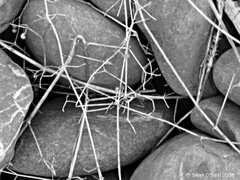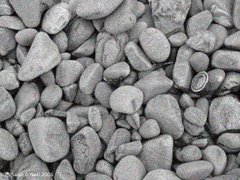
I am marking research papers this weekend. Or at least I am trying to, in between peaceful moments reflecting (see above) and frantic moments planning an enormous Sunday lunch.
Here’s what is worrying me – plagiarism. I have got at least one paper which is full of 'cut and paste' – and I have my suspicions about one or two others. What I am beginning to realize is that some of my students do not actually think they are doing anything wrong.
The information is so readily available, the phrasing so apt, and the point made so succinctly, that they just can’t resist it. More worrying are the students who have not ‘cut and paste’ but have simply changed the text a little. I probably won’t be able to find their stuff on the web, and therefore they will go unchallenged.
How can I teach my students to be more rigorous in their use of sources? How can I explain to them what plagiarism actually is, and why it might be wrong?
We really do live in ‘the information age’. There is so much on the internet that we can use without asking anyone. In the last hour for example, I downloaded some recipes whilst planning my Easter lunch and bookmarked a dozen pages for my own use as a teacher.
I also want to help students evaluate the sources that they use. I am collecting a few sites that explain how to do this. The first one I want to recommend is The Internet Detective. If you have found a website which explains plagiarism in a student friendly fashion, or guides students through the complexities of evaluating a source, please let me know.
I am also interested in how early we need to teach students how to cite sources.





5 comments:
The only way to stop plagiarism is to require students to reference their work with the books they have read and/or the websites they have used. They should then be marked not on the knowledge they display but their informed and discerning use of the information they have found.
I first learnt about plagiarism in first year when we got a rather unconventional cover teacher in Drama. He set a task for us all to write a short outline for a scene - the winning one would be performed by the class in the next lesson. Due to this promise of a reward, everyone took it very seriously, as first years do, and everyone contributed. At the end of the lesson he took in all our papers but unknowing to the rest of the class, made one pupil (X) stay behind.
He asked X copy out the idea of one of the more -ahem- ‘confident’ pupils in the class, Y, and told him to pass it off as his own. In the next class, X was declared the winner and this, of course, led Y to be outraged about how X had stolen his idea which almost led to a full scale classroom war. The teacher then went on to ask if anyone had heard of plagiarism and explained what it was and how wrong it was.
This, for me, is the only time plagiarism has ever been brought up in school. I guess it hasn’t really been a problem in the past but with the introduction of the internet as you say, it is becoming an issue. There are a great many sites out there that disguise plagiarism as The Easiest Option for a struggling pupil - for instance, in English this year we found sites offering “thousands of ‘ready-to-hand-in essays‘” with several different versions of each, to anyone willing to sign up and download.
I think the whole idea of plagiarism should be dealt with fairly early on in school. Explaining to pupils after they have been caught plagiarising things is perhaps the wrong way to go about it - they’re not about to stop, they’re just going to make sure they’re more careful with their rewording next time.
It is true, the whole, “stealing from many is research but stealing from one is plagiarism” issue. Defining the line between to two is the difficult bit.
[/blether]
Good luck with your Easter Sunday lunch! :)
Thanks Bob - I think you might be right about that.
Thanks Jemma -very good insight into this idea. I must say the drama teacher sounded like fun. I am not sure I would be quite up to that one... Having said that it certainly stuck in your mind.
I agree that we should start as early as possible with this one.
Hi Liz,
Good to see you're still around and enjoying life in the US of A!
You may be saddened to know that the Standard Grade folio is on its last legs (the current S2 will be the last to complete one, though we are still waiting to find out what will follow it!). My fourth years have just completed theirs and I was relieved to find very few 'dodgy' essays (only 1 out of 145!).
One of the best tools I've found for finding questionable resources is http://www.plagiarismdetect.com/
It's also quite a useful teaching tool as it will allow the pupils to check their own essays... the smart ones soon realise that as even the quotations are picked up, they can follow the links to where others have either:
a) used the quotation in an essay themselves thus allowing them to compare essays, or
b) see how others have quoted the text, which is great for looking at inter-textuality...
ANyway, enough of that already. How are you? Have a great Easter and I'm looking forward to reading more in the future.
Neil, nice to hear from you... and thanks for that link. I have the feeling that we need to do a lot more about this issue.
So the Standard grade has finally gone the way of all flesh...
I read your post about the way we are teaching novels etc the other day and thought it was very good. Must share some thoughts with you on that...
Post a Comment